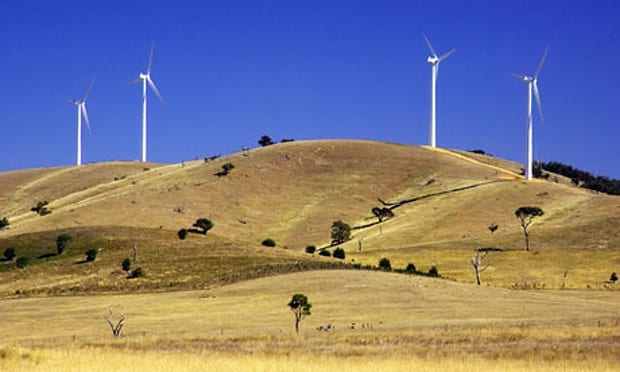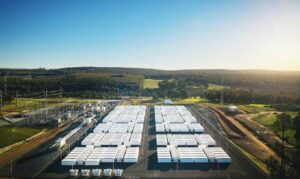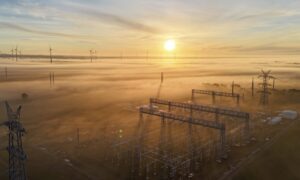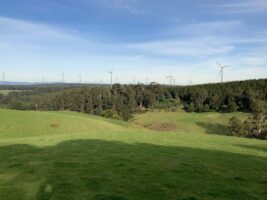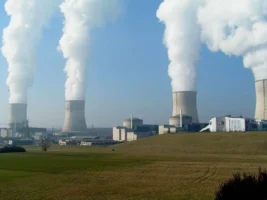
Concern is rising that the Australia’s biggest utilities and coal generators will push for yet another review of the renewable energy target if the Coalition is returned to government on Saturday, and is presented with a “workable” majority of supporters in the Senate.
The major utitilies have made it quite clear in recent months – as have numerous analysts – that meeting even the reduced RET of 33,000GWh by 2020 will be near impossible. One analysis suggests that 4,000MW of new large scale wind and solar needs to be contracted by year end. And that simply won’t happen.
The reason it won’t be contracted is because of policy uncertainty and an effective “capital strike” by the utilities, as this analysis by David Leitch underlines. Without any meaningful penalty or reward, there is neither a carrot nor a stick to force the utilities to write contracts to get new wind and solar farms built.
The majority of new projects that have been committed owe their funding to the reverse auction and 100 per cent renewable energy target from the ACT, or from grants from the Australiam Renewable Energy Agency, which the Coalition wants to strip of its remaining $1.3 billion in funds. The ACT projects do not contribute to the RET because the ACT government wants to ensure they are additional to the federal target.
The Coalition government has always insisted that the there would be no further changes to the RET, having threatened to abolish it altogether and then striking a deal with Labor to cut it from 41,000GWh to 33,000GWh.
But it has been long speculated that the Coalition government, with numerous climate science deniers and wind farm opponents in the ranks, would not hold the line. The utilities appear to have made the same assumption, and may be willing to force the issue depending on the outcome of Saturday’s election.

The Australian Solar Council tweeted on Thursday that it was “hearing rumours” of a push for another review of the RET after the election. The previous review, headed by climate denier and nuclear advocate Dick Warburton, resulted in a three-year investment drought that has only recently been broken.
The renewable energy industry believes it is inevitable if the Coalition government is returned with sufficient numbers in the House, and with enough sympathetic supporters in the Senate to overturn any objections from Labor and the Greens.
Labor has proposed a 50 per cent renewable energy target by 2030, which the Coalition has described as “economically irresponsible”. The Greens propose an even higher target, of 90 per cent by 2030. The Nick Xenophon Team, which could get three or four Senate seats, also proposes 50 per cent renewables by 2030, but does not support wind energy – a position that may make it impossible to meet the RET if it had influence over policy.
“These rumours don’t surprise me,” said John Grimes, the head of the Australian Solar Council. “We know there are conservative politicians who want to destroy the Renewable Energy Target. They’ve tried before, they’ll try again.
“If the Government has the numbers in the Parliament, and the support of enough conservative Senators, there will be another push to slash the Renewable Energy Target. That’s why your vote on Saturday is so important. Vote to support solar in the Senate and the House of Representatives.”
The rumours come as new polling shows that voters will expect minor parties to push the government into more ambitious renewable energy targets, rather than smaller or delayed ones.
The new polling commissioned by Solar Citizens and conducted by The Centre for Applied Political Psychology (CAPP) demonstrated that if independents and minor parties hold the balance of power in the Senate, a large majority of voters expect them to support an orderly shift to 100 per cent renewable electricity by 2030.
They also want the minor parties to protect the Australian Renewable Energy Agency. To cut its funding by $1.3 billion, as the Coalition proposes, or by $1 billion as Labor proposes, requires legislation to be passed by the Senate.
The survey of 3,000 people recorded overwhelming levels of support amongst voters for a wide number of solar and renewable energy policies.
“This polling shows that only 21% of Australian voters think that the current Federal Government is doing enough to ensure an orderly transition to 100% renewable energy,” said Matthew Farrugia, the research director of CAPP.
“This result coupled with high levels of support for far greater investment in renewables in general, and solar specifically, indicates that Australians are eager for the next government to do much more than is currently being done.

